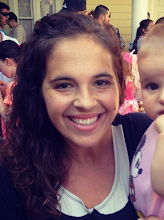I decided to just copy my LivingSocial review for this book, because I took more time to write it than I have right now to write another review. Let me just say, I really really enjoyed this book and I am really glad that I read it. And I think you should read it, too.
There seem to be a lot of books out right now about Charles Dickens: Drood and Lost both come to mind, but I think that Dickens, in general, is very in vogue in the fiction world. But this book looks at the Dickens story from an entirely different point of view, from that of his cast-off wife, Catherine, who in this book is Dorothea "Dodo" Gibson, the wife of Alfred Gibson (the fictionalized version of Charles Dickens).
Also, before I get into the review, I think that one of the most powerful aspects of this book, of the story in general, is the weight placed on written letters. Sure, we are able to communicate more efficiently and more quickly than ever before with the use of the Internet, but the experience of the tactile quality of letters is really special, and something that this book champions through the weight that Dodo places on the love letters she received as a young girl, that she continues to cling to even though everything around her is completely different.
One of the best books I have read this year, I applaud the strong characters, the story that is simultaneously heartbreaking and endearing, and the well-crafted prose that make this book unforgettable. Gaynor Arnold does something that hasn't been done, giving a voice to a woman largely forgotten, who feared that she would be a mere footnote in the life of her husband, and gives her the chance to be her own person and tell her own story. All of the characters are believable, from the larger-than-life, charismatic Alfred Gibson (Charles Dickens) to his precocious children and his wife, who in her grief is both silent (publicly) and outspoken (privately).
Arnold's fictionalized version of the story Charles Dickens and his wife Catherine seamlessly becomes the heart-breaking story Dorothea "Dodo" and Alfred Gibson. Written from the cast-off wife's perspective, Dodo draws the reader in from the very beginning of her story, one which is largely unrecognized by a Public that hangs on every word of her husband. Over the course of their lengthy and secretive courtship, Dodo kept every letter written to her by her future husband, and over the course of the ten years between her 'banishment' and Alfred's death, she continues to re-read the letters and relive the love as it was in the beginning. When Alfred dies, Dodo must cope with her deep loss yet again, as she is not welcome at the funeral; it is here that Arnold's narrative begins, immediately following Alfred's death.
One of the most compelling aspects of the story is Arnold's strong characters. Dodo's hopeful love, her desperate attempts to keep her marriage alive, and the anguish she feels following the death of her one true love are all expressed in completely honest, believable and heartfelt. It is clear that Arnold spent much time painting the portrait of Dodo, but she did not neglect the important supporting characters, composed of her servant Mrs. Wilson, her loyal friend Mr. O'Rourke and her children, particularly her daughter Kitty. The mother-daughter relationship is as well-crafted as that between husband and wife, and much of the tension the between all the children and their mother expresses, from the first moment they interact, the underlying love that will ultimately cancel out all of the uncomfortability of the situation. Dodo's love, which persists even in the wake of scandal and heartbreak, champions the power of language and the ability to love someone unconditionally.






